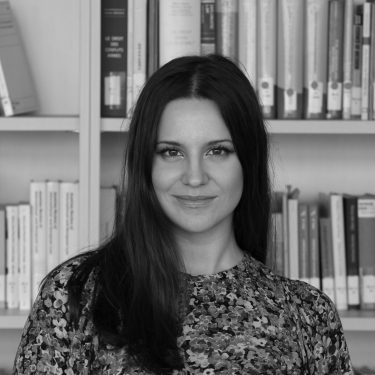Welcome to the latest interview of the Völkerrechtsblog’s symposium ‘The Person behind the Academic’! With us we have Prof. Marko Milanovic, and through the following questions, we will try to get a glimpse of his interests, sources of inspiration and habits.
Welcome Prof. Milanovic and thank you very much for accepting our invitation!
May I first ask what it was that brought you to academia and what made you stay?
Well, to be honest, I was always a nerd and have happily remained one. And I (still?) enjoy my work, both the teaching and the research sides of it.
If you were not an academic, what would you be?
An opera singer.
Could you share with us three authors that have had a major impact on your perception of justice?
‘Justice’ is such a big word, right? One can approach it from so many different perspectives, most of them non-legal. And I’m positive that my perceptions of justice have been shaped far more by how I was brought up by my parents and the context in which I grew up than by any book I’ve read, and that’s probably true of everyone. I’m also sure my perceptions of justice have been greatly shaped by the ‘non-serious’ literature I love reading, e.g. JRR Tolkein’s Lord of the Rings (which I’ve read like 20 times) and Frank Herbert’s Dune. So I’ll avoid answering your question directly. I do however highly recommend Michael Sandel’s Harvard lectures on justice and his accompanying book – great stuff.
Which are three texts that you would wish all academics working on international law would read?
Koskenniemi’s From Apology to Utopia – whether to agree or disagree with him. Crawford’s Creation of States. Anthea Roberts’ Is International Law International?
What is your greatest disappointment with international law? And in which way(s), do you think that international law is wrongly criticized?
Actually, I am not at all disappointed with international law, just like I am not disappointed with Serbian law, English law, North Korean law or with Roman law or the law of Pharaonic Egypt. Like any law it is a reflection of the society that it seeks to regulate. Like most legal systems it has systemic problems with enforcement. Like most legal systems it is internally conflicted between serving the interests of the powerful and trying to protect the weak from the powerful, and what is lawful is not necessarily just. As for how international law is wrongly criticized, the one line of criticism that is both the most common and the most tedious is that it is not ‘really’ law, that it is ‘just politics’ et cetera – generally made by people who have a very myopic view of what law is and how it works in practice.
What is your favourite place to read and write? What is always near you when you read and write?
In bed. I never read or write while sitting if I can help it. Has a lot to recommend it, except the consequences for spinal health.
What is an energy and inspiration booster, at times when you have none?
A nap. I really love a good nap. Also playing a video game (or two). There’s nothing wrong with leisure.
What is your favourite and least favourite part of being an editor of an international law blog, i.e. EJIL:Talk!?
My favourite part is reading other people’s work and learning from it. My least favourite part is dealing with (some) authors. I think this is the answer any editor of anything would give.
Have you ever drawn influence from any form of art in your work? Is there anything artistic about writing academic texts on international law?
Well, writing academic texts on international law is a form of literature in a way in which an article on say biology or astronomy is not. There is some level of art to it, at least at higher levels of scholarship. And being a reasonably good writer inevitably depends on what one reads.
Which of your publications is your favourite one? And which of them is your least favourite?
All of my publications are like my children, etc etc. Totally not going to answer this.
If you could, which unspoken rule of academia would you instantly erase?
What are these rules actually? Not sure what you mean. If I could legislate a rule, it would be ‘don’t be boring.’ And ‘don’t waste other people’s time on trivial things.’ And ‘don’t presume you have some kind of entitlement on other people’s time.’
Have you experienced or witnessed discrimination in academic circles? What do you think would help lessen discriminatory instances in academic circles?
Personally, I can’t say I’ve ever really experienced discrimination. Obviously I am a white man, so what do I know. The only issue on which I could really be discriminated on would be (say) working in the UK while being from Eastern Europe/not being a native English speaker and stuff like that, but I’ve never experienced this myself in any professional context (and only experienced it in other contexts on a very few occasions). As for witnessing it, I’ve definitely witnessed a lot of mansplaining, relying on hierarchies, elitism and the like – I suppose this goes to what we would include in the discrimination rubric. Obviously, I’m aware of instances of more serious and systemic discrimination in academia generally. As for how to lessen discrimination, the topic is so enormous that I don’t think I can tackle that here, except to say that most discrimination is driven by social determinants outside academia and is not really specific to academia.
Would you like to share with us a ‘sacrifice’ that you have made for your work? Do you regret it?
The only ‘sacrifice’ I have made is that of my own time. Je ne regrette rien. Even when I stupidly said ‘yes’ to something.
Ideally, whom would you want to find waiting for a meeting with you outside your office next Monday?
Stephen Colbert. But would rather have lunch than an office meeting.
What are you working on currently? What may we anticipate in the near future?
I’m writing an extended piece on rethinking the notion of coercion in the context of prohibited intervention. Also working on the third edition of the Tallinn Manual.
Thank you very much, Prof. Milanovic, for participating in our symposium and for having taken the time to respond to our questions!

Marko is a Professor of Public International Law at the University of Reading School of Law.

